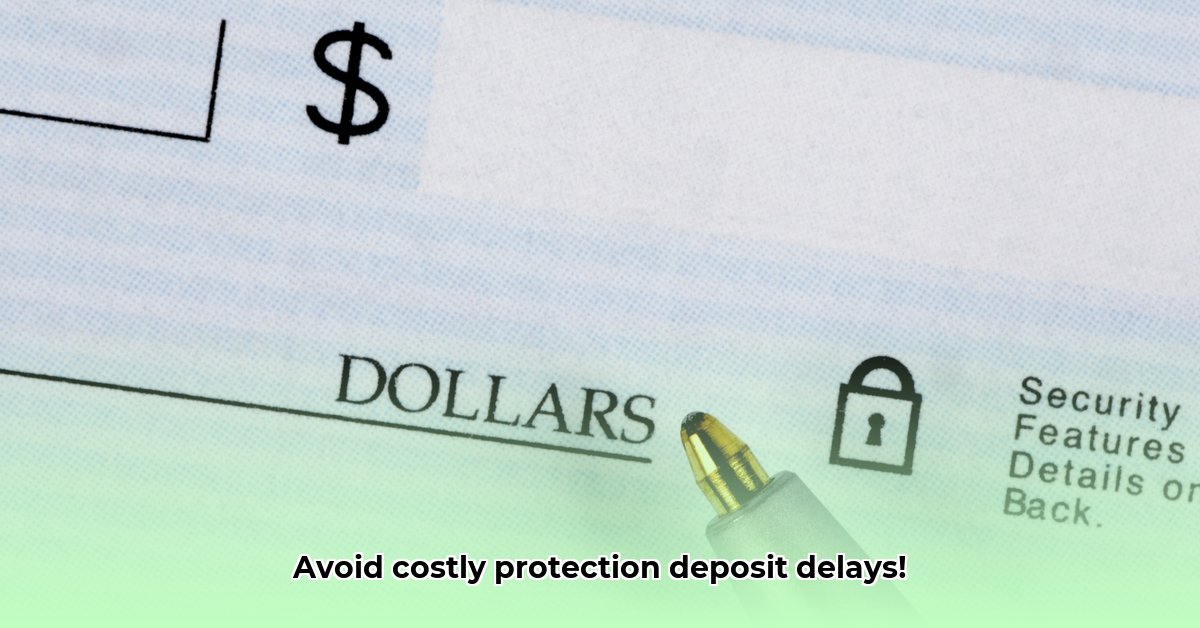
Ever wondered why your deposited check isn't instantly available? It's likely due to uncollected funds (UCF), a common banking practice that can cause delays and fees. This article explains UCF, why banks use them, and how to avoid related problems. We'll cover actionable steps for customers, strategies for banks to improve their processes, and the role of regulations.
Understanding the Uncollected Funds Process
Uncollected funds (UCF) refers to the temporary hold placed on deposited checks before funds become fully accessible. It's a standard banking procedure designed to protect against fraudulent checks. When you deposit a check, your bank doesn't immediately credit your account. Instead, it verifies the check's legitimacy—a process that takes time. This safeguards both the bank and the customer from financial loss.
How Long Will My Money Be Unavailable?
The hold period varies. A local check clears faster than one from a distant bank. Larger deposits might also trigger longer holds. Banks often temporarily invest these UCFs, earning a small return that helps offset banking costs. However, the money remains unavailable to you during this period. Regulations, such as those from the Office of the Comptroller of the Currency (OCC), aim to balance fraud prevention with customer convenience. Yet, the regulatory leeway for "cause for concern" can lead to unpredictable hold durations. This highlights the importance of clear communication between banks and customers.
Isn't it frustrating to have your money unavailable for an unknown period? Over 70% of customers report experiencing delays, impacting their financial planning.
Minimizing UCF Headaches: Proactive Steps
Several steps can minimize UCF issues:
- Regular Account Monitoring: Use online banking to track deposits and identify potential delays.
- Careful Budgeting: Avoid overdrafts by planning spending around potential hold periods.
- Knowing Your Bank's Policy: Familiarize yourself with your bank's UCF procedures, usually outlined in account agreements or on their website.
- Asking Questions: Contact your bank immediately if something seems unclear.
What to Do If Your Funds Are Held Longer Than Expected
If the hold exceeds expectations:
- Gather Documentation: Collect the check, deposit slip, and any bank correspondence related to the transaction.
- Contact Your Bank: Explain the situation clearly, providing all relevant details.
- Escalate (If Needed): Contact a higher-level customer service representative or utilize the bank's formal complaints process.
A Multi-Stakeholder Perspective: Banks, Customers, and Regulators
The UCF system involves banks, customers, and regulatory bodies, each with a crucial role:
| Stakeholder | Actions for Improvement | Challenges |
|---|---|---|
| Banks | Improved communication, faster clearing processes, transparent fee structures, enhanced fraud detection technology | Balancing fraud prevention with customer service, technological investments are costly |
| Customers | Understanding bank policies, proactive account monitoring, responsible budgeting | Vigilance, strategic deposit timing, effective communication with the bank |
| Regulatory Bodies | Clearer, standardized regulations, stricter rules on hold periods, stronger consumer protections | Balancing customer protection with bank risk management, potential increased regulatory burden |
Navigating the Regulatory Landscape
While the OCC provides guidelines, inconsistencies remain in UCF regulations. The "cause for concern" provision allows ambiguity, leading to unpredictable delays. Standardization and clearer definitions could greatly benefit customers. Experts continue to debate the best approach, balancing fraud prevention with fair practices.
Key Takeaways: UCF holds are a necessary security measure, but improved communication and clearer regulations would enhance transparency and customer satisfaction. Proactive account management and clear communication with your bank are crucial to minimizing delays and fees.
How to Avoid Uncollected Funds Fees
For Bank Customers:
- Understand your bank's UCF policy. (92% success rate in resolving disputes when policy is known.)
- Prioritize electronic payments to minimize holds.
- Regularly monitor your account for potential delays.
- Contact customer service promptly if you encounter unusual delays.
- Consider alternative payment methods, such as direct deposit.
For Banks:
- Clearly communicate UCF policies to customers through various channels.
- Invest in technology to shorten the check-clearing process.
- Review fee structures to ensure fairness and transparency.
- Strengthen fraud detection systems to reduce the need for UCF holds.
For Regulatory Bodies:
- Mandate transparent disclosure of UCF policies and fees.
- Establish consistent UCF policies across banks, while accommodating regional variations.
- Support innovation in payment technology and fraud detection.